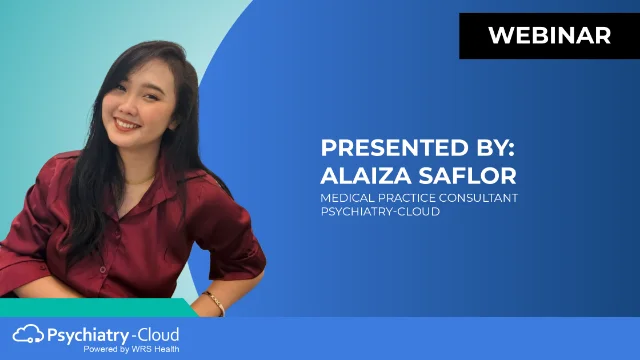Key Takeaways
- AI-powered EHRs for psychiatry shouldn’t only automate tasks, but also support clinicians to improve care and reduce admin burden.
- Not all AI-driven psychiatry EHRs are created equal.
- Choosing the top EHR for psychiatry will mean identifying systems that embrace future-focused capabilities without adding complexity to your workflow.
- Find out how AI in EHR can fix daily headaches for your mental health practice.
Table of Contents
How Is AI Used in Electronic Health Records?
Artificial intelligence in EHRs shouldn’t simply automate tasks. Rather, it should support clinicians in meaningful ways that improve care and reduce burden. In psychiatry, AI is being used to:
1. Support Clinical Documentation With Context
AI-powered EHRs can transcribe and summarize clinical conversations using ambient listening and natural language processing (NLP). This helps psychiatrists capture patient narratives without interrupting the flow of therapy. Over time, these tools can adapt to your documentation style, making your notes more efficient and accurate.
2. Enhance Care Planning With Predictive Analytics
3. Reduce Administrative Overload
From generating documentation to optimizing follow-up reminders and managing prior authorizations, AI can help reduce time spent on non-clinical tasks, freeing up your team to focus on care.
4. Improve Revenue Cycle Accuracy
With intelligent coding suggestions and real-time documentation checks, AI can help ensure you’re billing appropriately without over-coding or under-documenting. This is particularly helpful when documenting therapy time, complexity, and medication management.
5. Analyze Patient Sentiment and Engagement
Some systems are beginning to use AI to analyze tone, sentiment, or language patterns in patient communication. While still evolving, these features may help detect early signs of depression, anxiety escalation, or suicidal ideation, offering another layer of clinical insight.
What AI Features Should I Look for in an EHR?
Here’s how to spot the difference:
Ask Yourself:
- Is the system built from real-world documentation use cases?
- Does it adapt based on patient context, not just diagnosis codes?
- Does it provide personalized support or generic automation?
Red Flags to Watch Out For:
- Rigid documentation templates labeled “AI”
- No change in performance over time
- No transparency on how the AI works or how data is used
- Added clicks with no added value
Effective AI in psychiatry EHRs should enhance your clinical insight, reduce your administrative effort, and evolve alongside your practice not stay static.
If you’re starting to compare mental health EHRs, investigate whether the AI delivers measurable improvements in clinical documentation, patient safety, and operational efficiency. Choosing the top EHR for psychiatry will mean selecting systems that embrace future-focused capabilities without adding unnecessary complexity to your workflow.
EHR vendors that are already integrating true AI features like Psychiatry-Cloud’s CCDA Insights, AI E/M Coding Advisor, and AI Scribe are ahead of the curve. These capabilities solve today’s problems while laying the foundation for future-ready care.
Avoiding the AI Trap: Questions to Ask Vendors
Before committing to a system, ask these key questions:
- What specific AI technologies are used (e.g., NLP, machine learning)?
- What documentation or coding tasks are automated?
- How does the AI learn and adapt over time?
- Is the AI designed specifically with psychiatry in mind?
- How will this tool evolve with regulatory and clinical changes? Is it HPAA Compliant?
- What kind of support and training are available for clinicians?
An AI-powered EHR that improves your practice should reduce your documentation time, support more personalized care, and improve clinical efficiency, not just check a box on a features list.
Investing in AI That Grows With You
As a psychiatrist, you know that meaningful connection and individualized care are everything. The top EHR for psychiatry should reflect that. With the growing number of options available, it’s more important than ever to compare mental health EHRs through the lens of long-term clinical value, not just marketing.
Look for AI that:
- Supports therapy-centered documentation
- Enhances early risk identification
- Adapts to your unique practice style
- Improves your billing accuracy without adding complexity
When done right, AI doesn’t replace the human aspect of care. It reinforces it.











